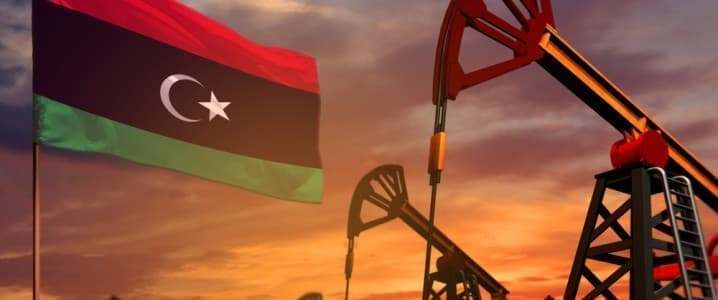
Libya is experiencing heightened tensions as various power factions vie for control, while international oil companies are increasingly re-engaging with the country. The potential for substantial investment from these oil majors could contribute to stability, but analysts warn that without cooperation between rival factions in Benghazi and Tripoli, the likelihood of renewed civil conflict remains high.
The Tripoli-based Government of National Unity (GNU), under the leadership of interim Prime Minister Abdul Hamid Dbeibah, is currently in a direct standoff with the Special Deterrence Force (RADA). This militia group has been accused of harboring over 120 wanted individuals, including a commander indicted by the International Criminal Court (ICC). In a recent public ultimatum, Dbeibah demanded that RADA relinquish control of Mitiga Airport and its associated prison facilities.
RADA has responded to Dbeibah’s demands with a declaration of a “war of survival,” indicating its readiness to escalate militarily if provoked. This confrontation follows a resurgence of violent clashes between militias in Tripoli in May 2023, further emphasizing the precarious situation in the capital. The escalating conflict suggests that Dbeibah’s grip on power within the GNU is weakening, raising concerns about the effectiveness of his leadership.
Traditionally, RADA is not aligned with the forces of eastern strongman Khalifa Haftar, who has been a rival to Dbeibah. This unexpected confrontation points to a significant shift in the power dynamics within Tripoli, illustrating Dbeibah’s diminishing authority and his challenges in enforcing order. His call for RADA to vacate Mitiga signals a lack of confidence rather than a strong assertion of control, raising questions about his ability to maintain stability in the region.
As international oil companies consider re-entering the Libyan market, the potential for economic recovery exists. Yet, the ongoing tensions between rival factions complicate the prospect of a peaceful environment necessary for such investments. The situation remains fluid, with the potential for further escalation unless a compromise can be reached between the competing interests in Libya.
The international community continues to monitor developments closely, recognizing that the stability of Libya is crucial not only for its citizens but also for the broader regional dynamics and global oil markets.







